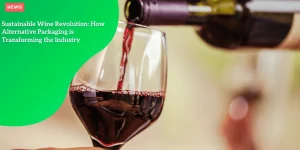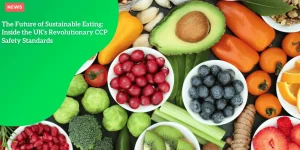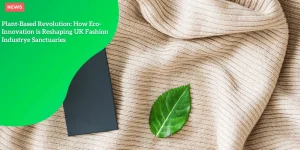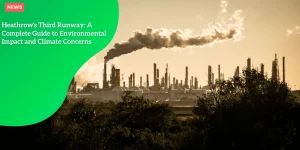UK Shoppers Alert: Why Your Washing-Up Liquid Choices Are Harming Our Oceans
Anúncios
The Scale of the Plastic Problem
Plastic waste is one of the most pressing environmental issues we face today.
Globally, a staggering 52 million tonnes of plastic waste enter the environment each year.
Anúncios
This includes a variety of plastic products like the common household plastic bottles that we use every day.
However, the fate of these bottles is far from ideal.
Anúncios
The Discrepancy in Recycling Efforts
Despite growing awareness about the importance of recycling, less than half of household plastic bottles are collected for recycling.
Even more concerning, only 7% of the collected bottles are actually recycled into new products.
This low percentage has far-reaching implications for our environment.
Essentially, a significant amount of our plastic waste ends up in landfills, is incinerated, or, worse yet, finds its way into our oceans.
The sobering statistics
These statistics paint a grim picture of insufficient recycling infrastructure and inadequate consumer practices.
They underscore the necessity for both systemic change and individual responsibility.
Companies like Ecover have been vocal about the urgent need to shift our plastic use and recycling habits.
Ecover has highlighted the environmental damage caused by plastic, revealing that less than half of plastic bottles produced for household use were collected for recycling in 2016, and only a small fraction of those bottles were turned into new products.
The Path Forward
Steps toward improving this situation include better waste management systems and increased consumer awareness.
More effective recycling programs and the development of sustainable packaging solutions are crucial.
Companies can contribute by designing products that are easier to recycle and investing in infrastructure that supports recycling.
Meanwhile, consumers have a role to play as well.
By choosing products packaged in recyclable materials or opting for refillable options, they can help reduce the amount of plastic waste.
The collective impact of these choices can lead to significant improvements in how efficiently we manage and reduce plastic waste.
The scale of the plastic problem is immense and multifaceted, affecting not only our landscapes but also our oceans and marine life.
Understanding these key issues is the first step towards meaningful change.
As we delve deeper into this topic, it becomes evident that immediate actions are necessary to mitigate the plastic waste crisis.
Next, we will explore the impact of plastic pollution on marine ecosystems, and the urgent steps needed to address these pressing environmental concerns.
Impact on Marine Ecosystems
Plastic pollution in our oceans is escalating at an alarming rate. Each year, approximately 12.7 million plastic bottles find their way into marine environments.
This staggering number reflects a broader issue where an estimated 52 million tonnes of plastic waste enter the environment globally.
The impact of this pollution on marine ecosystems is manifold and increasingly severe.
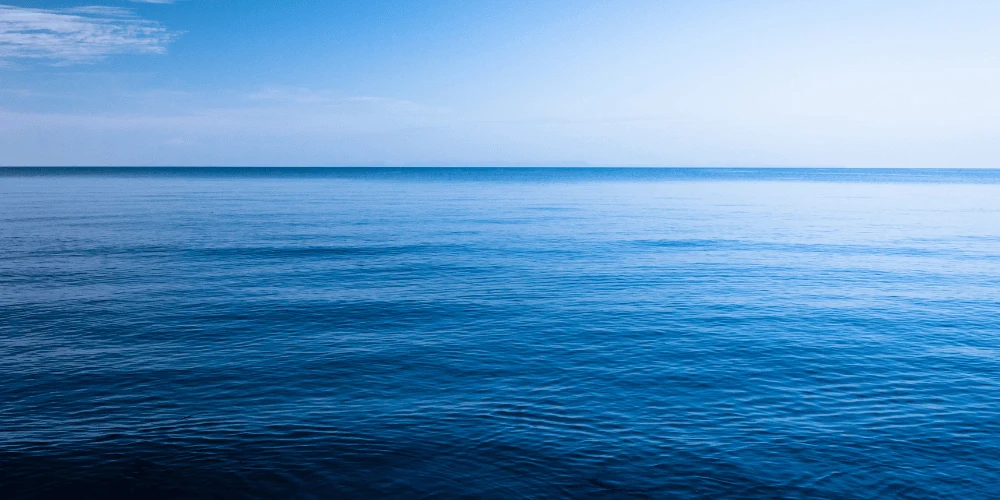 The ecosystem must be preserved
The ecosystem must be preserved
Detrimental Effects on Marine Life
Marine life bears the brunt of plastic pollution.
The ingestion of plastic by marine animals is a widespread problem. From tiny plankton to large whales, numerous species mistake plastic waste for food, leading to dire consequences.
Ingested plastic can cause internal injuries, obstruct digestive tracts, and even lead to starvation.
Moreover, plastics contain and absorb harmful chemicals, which get passed up the food chain, ultimately affecting human health as well.
Entanglement is another fatal threat.
Marine creatures, including fish, seabirds, and mammals, often become entangled in plastic waste.
This can cause suffocation, drowning, or significant injuries.
The impact extends beyond individual animals and threatens entire populations, contributing to the dwindling numbers of various species.
Urgent Need to Address Plastic Pollution
The urgency to address plastic pollution cannot be overstated.
Plastic waste in waterways directly affects the health of marine ecosystems, which play a crucial role in regulating the planet’s climate and supporting the livelihoods of millions of people.
Healthy oceans contribute to global biodiversity, carbon sequestration, and are a critical source of food and economic benefits.
Addressing this issue requires a systematic approach encompassing improved waste management, enhanced recycling processes, and the promotion of sustainable consumer habits.
Industry leaders have already begun taking steps to reduce plastic use and waste.
For instance, Ecover has established over 700 refill stations across the UK and pledged to eliminate virgin plastic from its packaging.
Similarly, Fairy has introduced refill cartons that save up to 85% of plastic, promoting a model of reuse over single-use plastic consumption Fairy.
To mitigate the growing plastic problem and protect marine ecosystems, it’s essential for consumers to adopt more sustainable practices.
Choosing products with recyclable packaging, using refill stations, and switching to refillable washing-up liquid products are practical steps that can make a significant difference.
We can all play a role in protecting our oceans by rethinking our consumption habits and supporting initiatives that aim to reduce plastic waste.
Sustainable living is not just a choice; it’s a necessity for the health of our planet and future generations.
Sustainable Solutions from Industry Leaders
Ecover’s Refill Station Network
Navigating through the sheer magnitude of the plastic problem can be daunting.
But industry leaders like Ecover are stepping up to provide sustainable solutions.
Ecover, well-known for its ecological cleaning products, has established an extensive network of over 700 refill stations across the UK.
At these stations, consumers can refill their bottles with washing-up liquid, laundry detergent, or toilet cleaner.
This simple yet impactful initiative helps to significantly reduce the number of single-use plastic bottles entering our environment.
Opting to refill rather than purchase new bottles can create a ripple effect, encouraging a shift in consumer behavior and diminishing plastic waste.
Ecover’s Commitment to Eliminating Virgin Plastic
Ecover’s dedication to sustainability goes beyond just providing refill options.
The company has publicly committed to eliminating the use of virgin plastic in their packaging entirely.
This bold move marks an essential milestone in their journey towards a circular economy.
Tom Domen, Ecover’s Long-Term Innovation Manager, has emphasized that rethinking plastic usage is crucial for both the company and the planet.
This ambitious goal, although it may take years to achieve, aligns with a broader vision to reduce plastic pollution and conserve natural resources.
By prioritizing reused and recycled materials, Ecover aims to lessen the environmental impact of their products.
Fairy’s Recyclable Refill Cartons
Another notable example is Fairy, which has introduced refill cartons for their washing-up liquid bottles.
These cartons allow consumers to refill a typical Fairy liquid bottle more than twice, saving up to 85% of the plastic used.
Not only are these refill cartons recyclable, but they also encourage consumers to develop more sustainable laundry habits.
The innovative design of Fairy’s refillable products is catered to providing a better cleaning experience and minimizing the environmental footprint.
Fairy’s commitment to reducing plastic waste doesn’t end there.
Their Max Power refill carton aligns with low-waste living, promoting a more sustainable lifestyle by eliminating the need for repeated single-use plastic purchases.
By investing in these refill solutions, Fairy is actively contributing to the reduction of plastic pollution in our waterways and oceans.
Transition
Both Ecover and Fairy exemplify how companies can lead the way in addressing plastic waste by innovating and offering eco-friendly alternatives.
By investing in refill options and eliminating virgin plastic, these industry leaders are not just talking about sustainability—they are taking tangible steps towards it.
As consumers, we have the power to support these initiatives, starting with our everyday choices.
Consumer Action Steps
Switch to Refillable Washing-Up Liquid Products
Making the switch to refillable washing-up liquid products is a simple yet significant step towards reducing plastic waste and combating marine pollution.
Refilling your existing containers not only cuts down the number of new plastic bottles produced but also minimizes the waste generated by single-use packaging.
Companies like Ecover and Fairy have introduced eco-friendly alternatives that make it easier for consumers to choose sustainable options.
Refillable products provide the same cleaning power while drastically reducing the environmental footprint.
By opting for such solutions, consumers directly contribute to less plastic entering the oceans and harming marine life.
As an added benefit, these products often come in concentrate forms, ensuring that you get more use out of each purchase.
Use Available Refill Stations for Cleaning Products
Another impactful step consumers can take is utilizing the network of refill stations available.
Ecover has established over 700 refill stations across the UK, where you can bring your empty bottles and refill them with washing-up liquid, laundry detergent, or toilet cleaner.
This not only helps to cut down on plastic waste but also supports a circular economy.
By frequenting these refill stations, you reinforce demand for sustainable options, compelling more companies to follow suit.
Refill stations are generally easy to access and user-friendly, making the process of switching to sustainable living more convenient for everyone.
Choose Products with Recyclable Packaging
Finally, being mindful of the packaging that comes with your cleaning products is crucial.
Choosing products that use recyclable packaging can have a significant effect on reducing plastic waste.
For instance, Fairy has introduced refill cartons that save up to 85% plastic.
These cartons allow consumers to refill their bottles multiple times, decreasing the reliance on new plastic bottles.
Recyclable packaging ensures that once you have finished the product, the packaging can either be repurposed or properly recycled, reducing the volume of waste that ends up in landfills or the ocean.
By selecting products that prioritize recyclable materials, consumers can help drive the market towards more sustainable practices.
Taking these consumer action steps is a straightforward way to contribute significantly to the reduction of plastic waste and protection of marine ecosystems.
As more consumers adopt these practices, the collective impact can lead to substantial environmental benefits.

